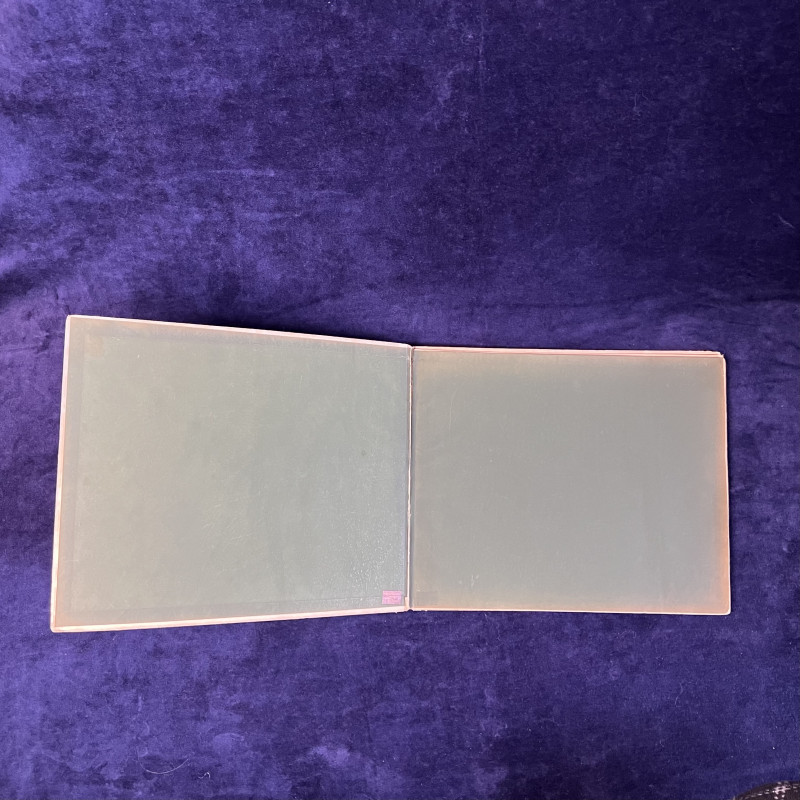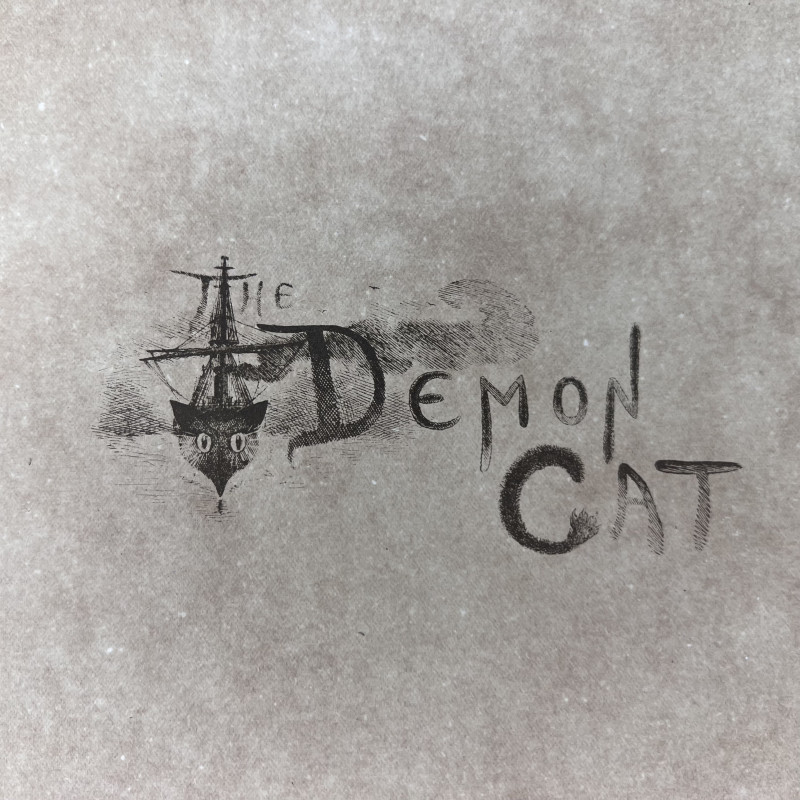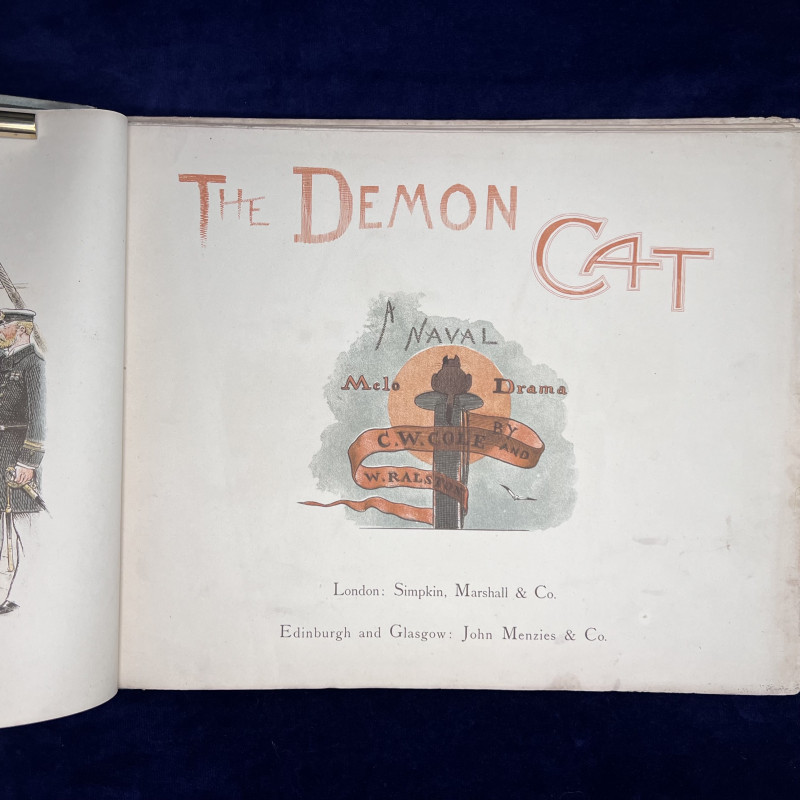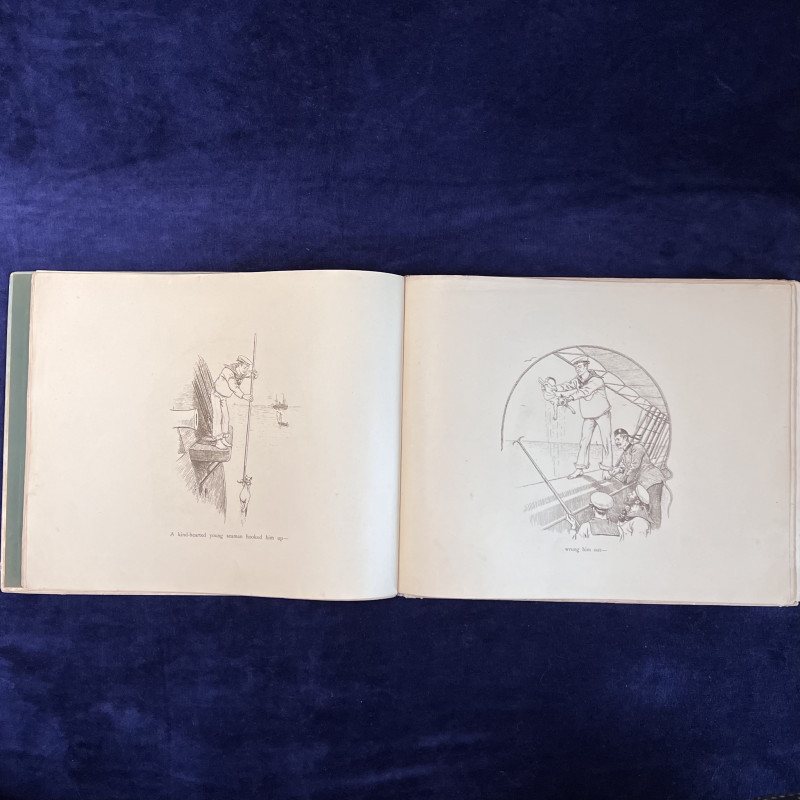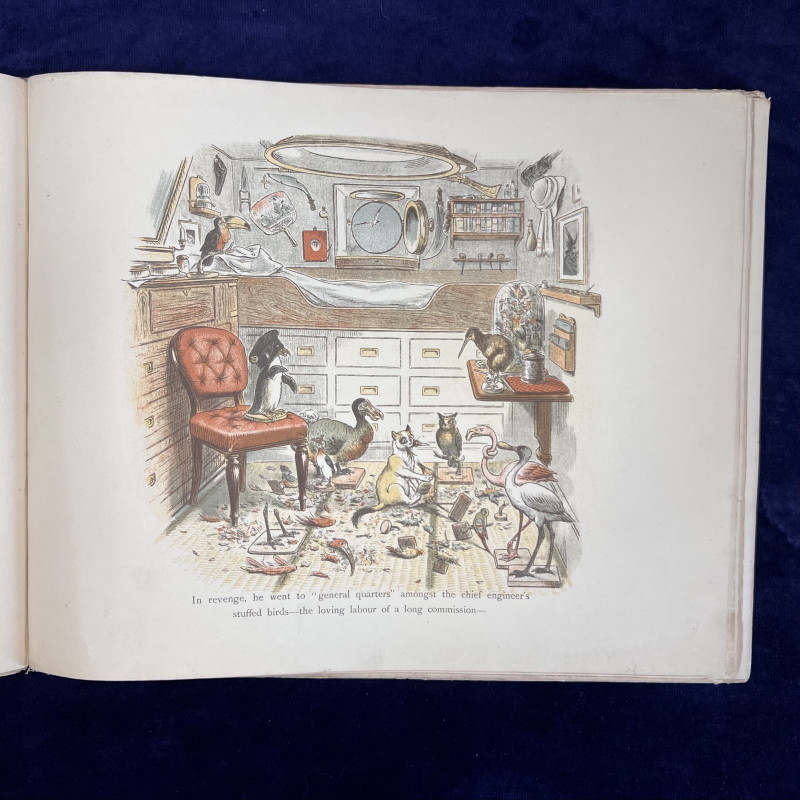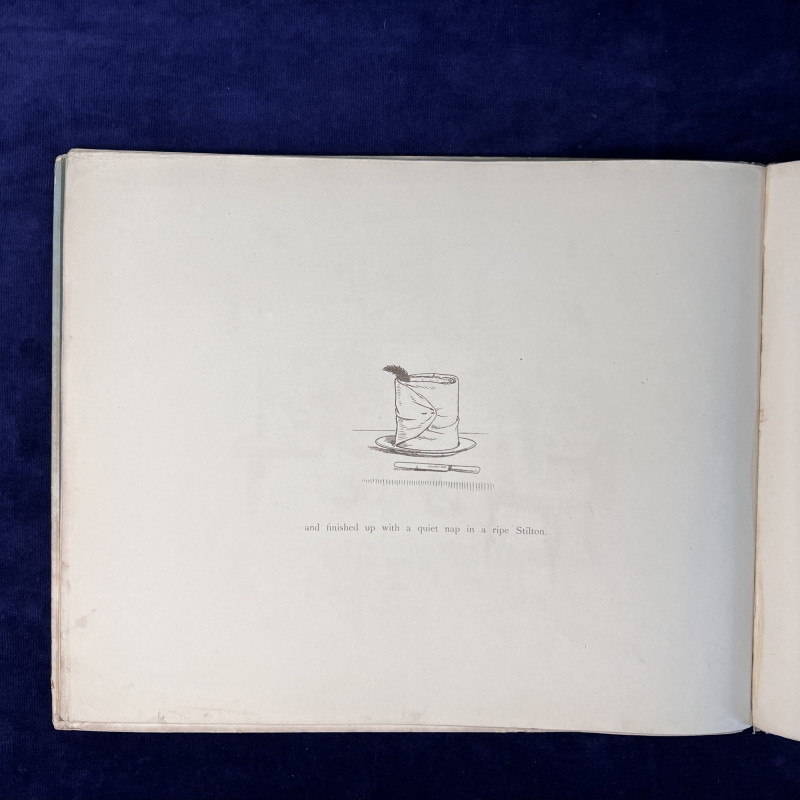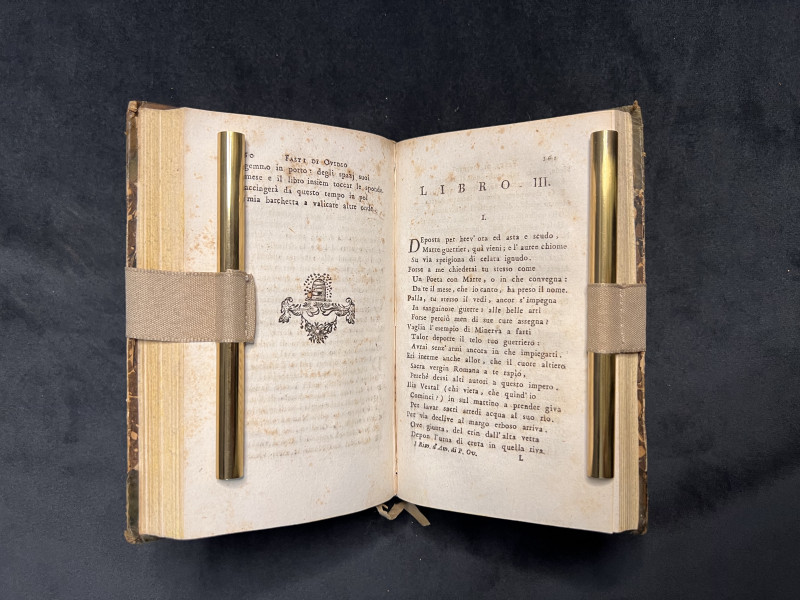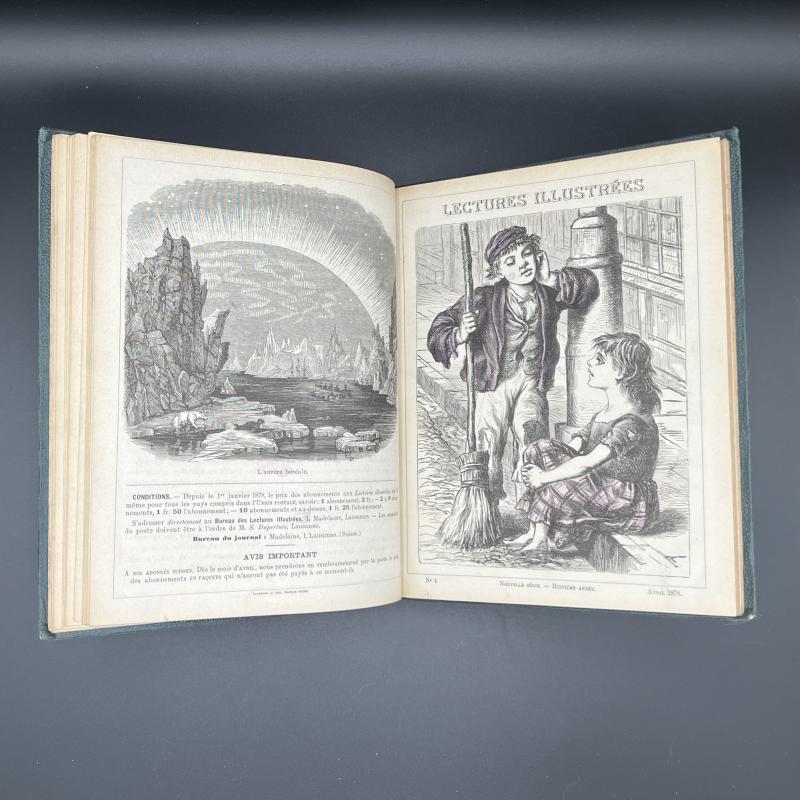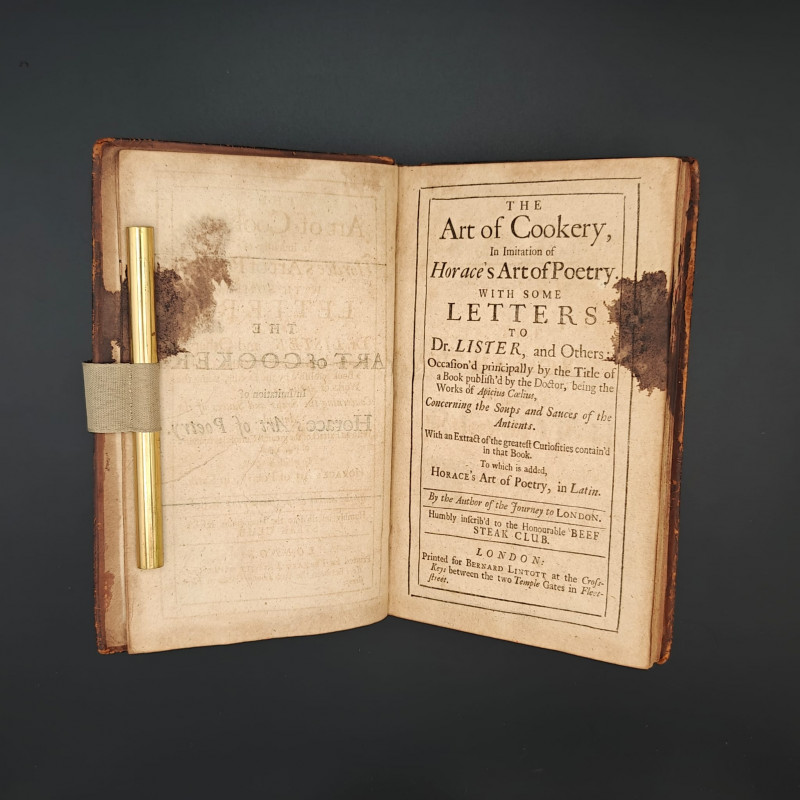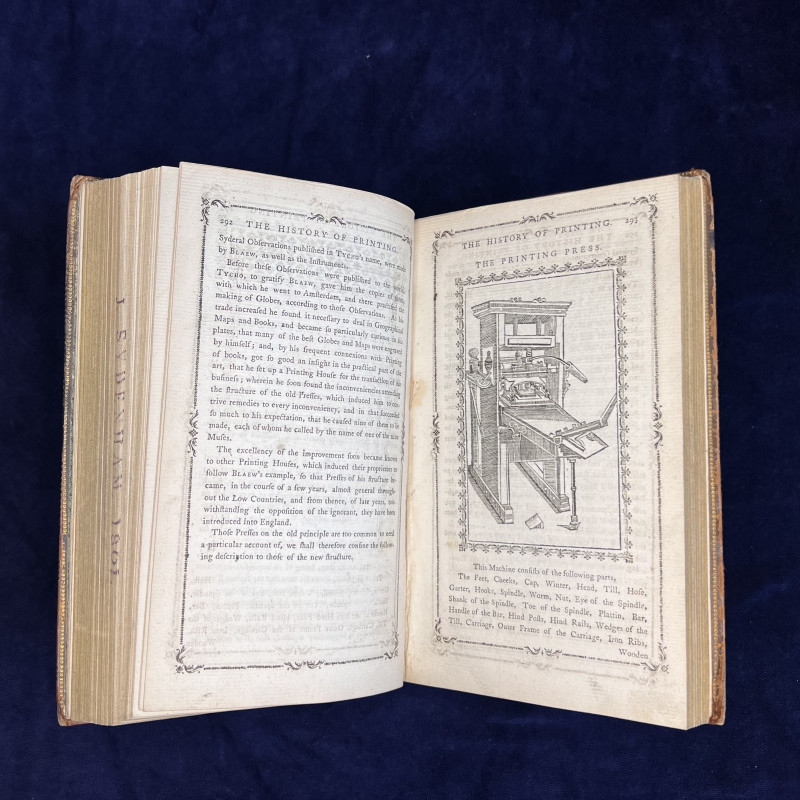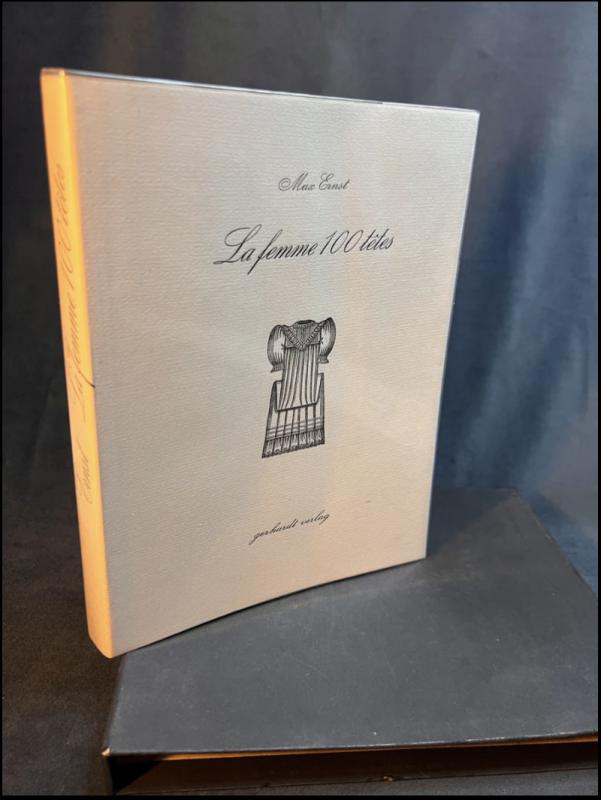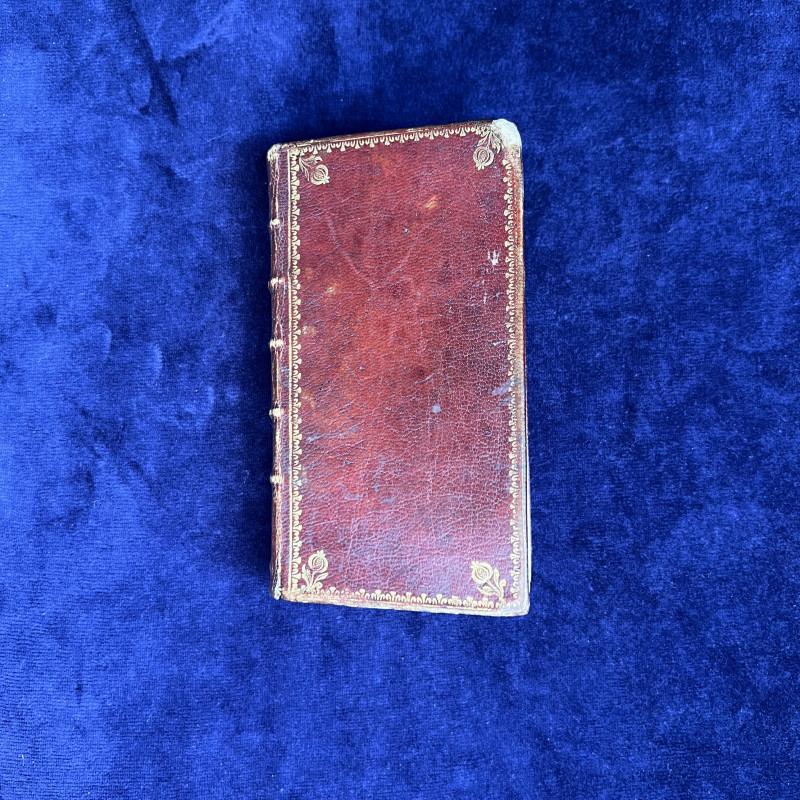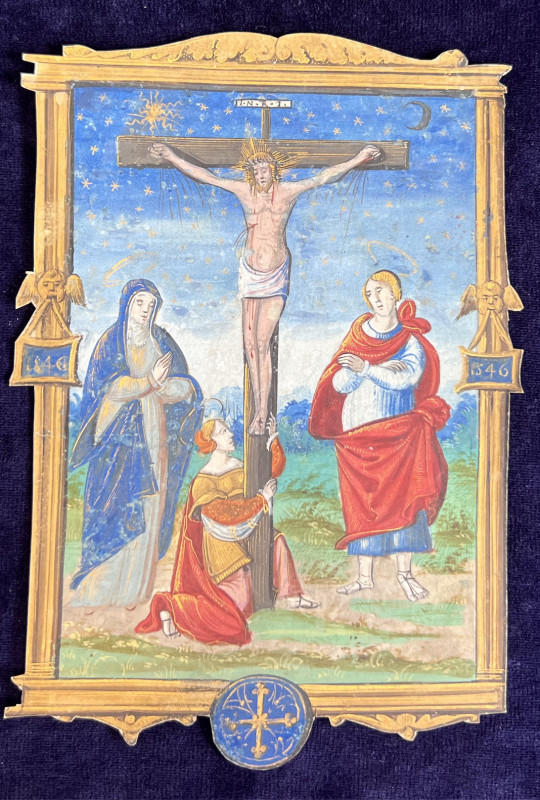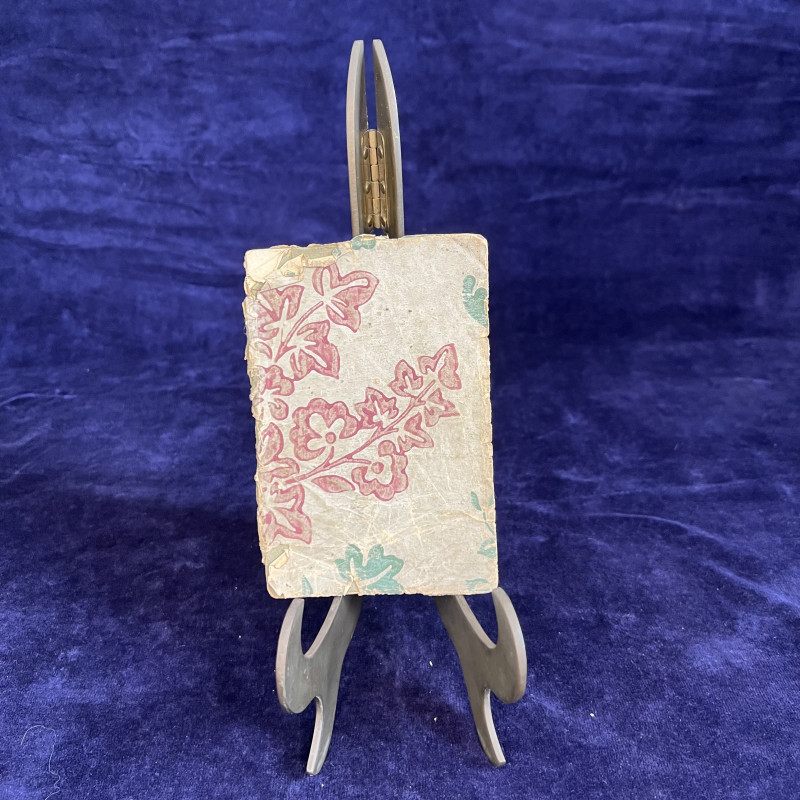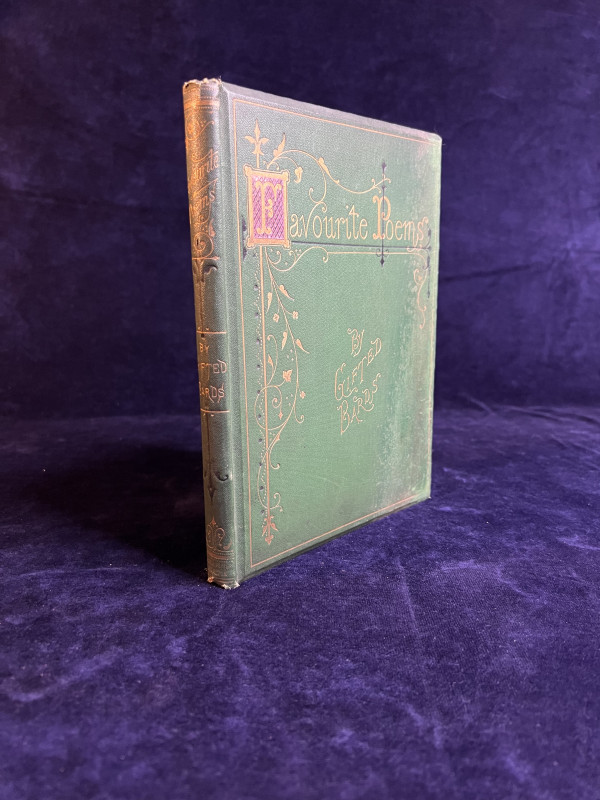The Demon Cat
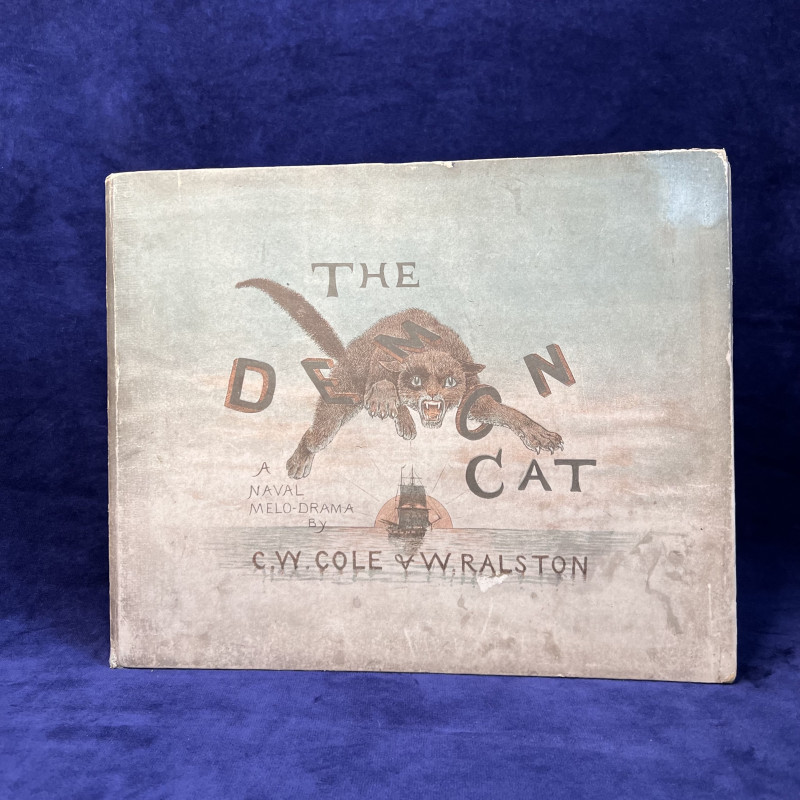
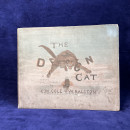
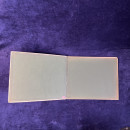
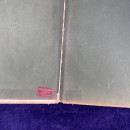
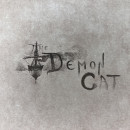
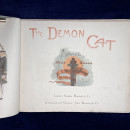
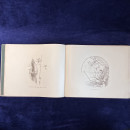
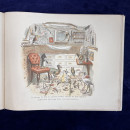
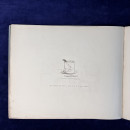
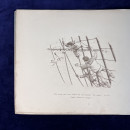
Book Description
C. W. COLE and W. RALSTON. The Demon Cat, a Naval Melo-Drama. London: Simpkin, Marshall & Co. Edinburgh & Glasgow: John Menzies & Co. [n.d, ca. 1880s].
(240 x 200 mm) Unpaginated. Short lines of text on each page which supports a chromolithograph or mono lithograph illustration. Bookseller’s stamp, “Freestone & Knapp, Nottingham”. 1 page of publisher’s ads. Joints splitting on front board separating but only visible internally; binding is still firm. Covers a bit stained; some pages have short closed tears, but overall, in GOOD condition for age & material.
Dealer Notes
This story isn’t particularly nice for the cat, but childhood wasn’t particularly nice for Victorian children, so…
This is a very strange, but thoroughly Victorian, tale about a giant demon cat who jumps aboard a naval ship, shrinks down to normal-cat-size, does normal cat mischief, and ultimately, suffers greatly & gruesomely for choice of napping spot. The shock value of the ending is reminiscent of the subject matter of the contemporary sensationalist penny dreadfuls.
A children’s book by design, the explosive ending speaks to the different perspectives of childhood between the 19th and early 20th century compared to our own. Brutal literature reflects a brutal time period. Untreatable diseases, the consequences of industrialisation & child labor, overcrowded urban areas and crime, these quotidian horrors that children faced perhaps reframe the Demon Cat into a comparatively whimsical story for the Victorian child. Like with many Victorian children’s stories, the moral of the story is to not be like the Demon Cat: show restraint and respect, avoid being overly curious, do not nap in a “ripe Stilton” cheese, try to not be a nuisance, and you may not get blown up by a cannon.
This is a very strange, but thoroughly Victorian, tale about a giant demon cat who jumps aboard a naval ship, shrinks down to normal-cat-size, does normal cat mischief, and ultimately, suffers greatly & gruesomely for choice of napping spot. The shock value of the ending is reminiscent of the subject matter of the contemporary sensationalist penny dreadfuls.
A children’s book by design, the explosive ending speaks to the different perspectives of childhood between the 19th and early 20th century compared to our own. Brutal literature reflects a brutal time period. Untreatable diseases, the consequences of industrialisation & child labor, overcrowded urban areas and crime, these quotidian horrors that children faced perhaps reframe the Demon Cat into a comparatively whimsical story for the Victorian child. Like with many Victorian children’s stories, the moral of the story is to not be like the Demon Cat: show restraint and respect, avoid being overly curious, do not nap in a “ripe Stilton” cheese, try to not be a nuisance, and you may not get blown up by a cannon.
Author
C. W. COLE and W. RALSTON.
Date
ca. 1880s
Binding
Illustrated hardcover on cardboard
Publisher
London: Simpkin, Marshall & Co. Edinburgh & Glasgow: John Menzies & Co.
Illustrator
W. Ralston
Condition
GOOD
Pages
Unpaginated
Friends of the PBFA
For £10 get free entry to our fairs, updates from the PBFA and more.
Please email info@pbfa.org for more information
